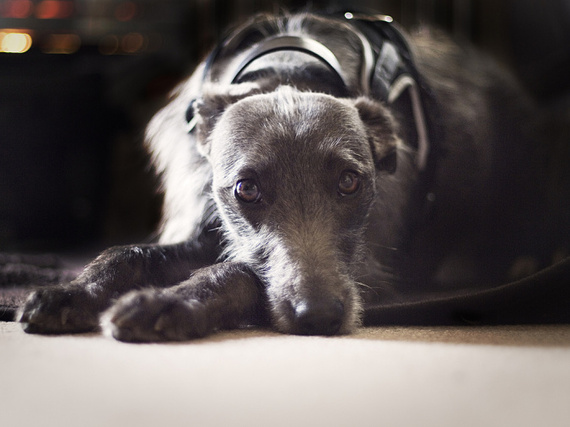 Perfectly healthy young people have been taking themselves to doctors, worried that their forgetfulness is a sign of Alzheimer's, according to a report last month about doctors in Australia who are studying the phenomenon. But for most of us, growing forgetfulness is little more than a natural reaction to information overload.
Perfectly healthy young people have been taking themselves to doctors, worried that their forgetfulness is a sign of Alzheimer's, according to a report last month about doctors in Australia who are studying the phenomenon. But for most of us, growing forgetfulness is little more than a natural reaction to information overload.
Our brains are simply not wired to process the vast amount of information and choices we are exposed to these days--and the impossible effort to do so can lead to indecisiveness, bad decisions and stress, according to Lucy Jo Palladino, Ph.D., a psychologist and author of Find Your Focus Zone.
Information overload can also tempt us to tune out or simply slide across the surface of life -- like a water strider on a pond, robbed of the pleasure of a place to land. So what genuinely helps people navigate this Information Age (which, perhaps not coincidentally, has also been called the Age of Anxiety?)
There are lots of suggestions out there in publications such as, Fast Company, Forbes and Aeon. Many discuss the dangers of email and multitasking and the value of daydreaming, taking breaks, going for walks, writing things down, and doing the most important things first. Daniel Goleman also recently wrote about the topic in Focus: The Hidden Driver of Excellence, in which he explores the benefits of mindfulness meditation, focused preparation and recovery, positive emotions and connections, and mental "prosthetics."
As someone who has an insatiable desire to know and do everything, I've also come to find three insights particularly helpful. Rather than concrete actions, they serve more as mindsets or perspectives to take on all that is available to us now -- and stay centered on what truly matters to us as individuals.
What's new is not (necessarily) important. In a recent interview on Krista Tippett's podcast, On Being, Maria Popova, the creator of Brain Pickings, observed that the way information comes to us today via the Internet constantly reinforces the idea that what is new is what is important and valuable. But this, of course, is not true. Much of what is delivered up as new is neither important nor valuable. To the contrary, it can be a great distraction from what is meaningful -- which is often old, timeless, contained in books, in music, in art, and in the hearts and souls of human beings who need only the expanse of quiet, leisure, stillness, and each other to bring their wisdom to life. Put another way: It helps to remember that trying to keep up with what is new is not necessarily what's most likely to make you happy, healthy, or successful.
Sensitivity to other people's expectations can spin you in circles. Being overly influenced by other people's expectations can make us vulnerable to being reactive instead of deliberate; and those of us who are sensitive to other people's expectations need to figure out how to manage that. When I was growing up, for example, my father on more than one occasion became furious at me for reading a book rather than volunteering to help around the house. While he clearly did not remember what it was like to be a kid or enjoy himself, his reaction had an impact on me. And to this day, I need to remind myself to be conscious of my motivations before I act so I do not unconsciously relinquish the reins of my life to the helter-skelter whims of others.
Focusing on what makes you feel like you is the best guide there is. Like most writers, I have spent a lot of time living a dual existence: "professional" by day, and "writer" by any early or late hour I have to myself. I am fortunate that I am adept at my professional work, I enjoy it, and I find it meaningful. But when I think it is me, instead of what I do, I tend to lose my focus--and, often, lots of things start to go wrong. But when I am know that I am a writer first--because that is where I feel most fully me--I make smarter decisions, my energy flows more smoothly, and things tend to go better in my working life, my writing life, and my personal life. I can look at the information that comes my way and not feel overly reactive and spun about by distractions because I am acting from what I can only describe as the core of my being.
In short, it comes down to those familiar words: Know yourself -- and then trust yourself. It is as simple and remarkable as that.
(This post appeared in an earlier version at http://lisabennett.org/blog/ Photo credit: AlmaArte Photography.)